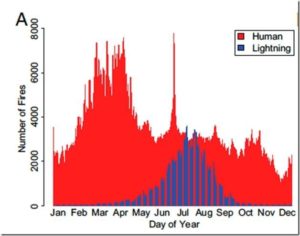by DR. B. Peiser, Nov. 8, 2019 in ClimateChangeDispatch
A new paper from the Global Warming Policy Foundation looks at how scientists monitor changes in ocean temperatures and finds a story of huge uncertainties and surprising findings.
For example, while warming might be expected to be fairly uniform, measurements suggest that it is regionalized, with parts of the South Pacific, in particular, warming more than elsewhere.
As the report’s author, Dr. David Whitehouse, says, it is hard to draw firm conclusions about what is happening in the seas:
“The oceans can absorb far more heat than the atmosphere, so temperatures changes are extremely small and therefore hard to measure reliably.”
“The energy that would raise the temperature of the atmosphere by 4 degrees C would only raise the ocean temperature by thousands of a degree, barely detectable.”
“Measuring changes in the ocean heat content are at the limits of our current capability and are made with significant uncertainties and unknowns.”
A recent claim that warming of the oceans was accelerating had to be withdrawn after errors were found in its uncertainty estimates by an independent scientist.
Cold Water? The Oceans and Climate Change can be downloaded here (PDF)

by Jim Steele, November 9, 2019 in WUWT
As one wildfire expert wrote, “Predicting future fire regimes is not rocket science; it is far more complicated than that.” But regardless of accuracy, most people are attracted to very simple narratives such as: more CO2 causes global warming causes more fires. Accordingly in the summer of 2019, CNN trumpeted the headline California wildfires burn 500% more land because of climate change. They claimed, “the cause of the increase is simple. Hotter temperatures cause drier land, which causes a parched atmosphere.” CNN based their claims on a scientific paper by lead authors Park Williams and John Abatzoglou titled Observed Impacts of Anthropogenic Climate Change on Wildfire in California. The authors are very knowledgeable but appear to have hitched their fame and fortune to pushing a very simple claim that climate change drives bigger wildfires. As will be seen, their advocacy appears to have caused them to stray from objective scientific analyses.
If Williams and Abatzoglou were not so focused on forcing a global warming connection, they would have at least raised the question, ‘why did much bigger fires happen during cooler decades?’ The 1825 New Brunswick fire burned 3,000,000 acres. In Idaho and Montana the Great Fire of 1910 burnt another 3,000,000 acres. In 1871, the Great Michigan Fire burned 2,500,000 acres. Those fires were not only 6 times larger than California’s biggest fire, they occurred in moister regions, regions that don’t experience California’s Mediterranean climate with its guaranteed months of drought each and every summer. If those huge devastating fires occurred in much cooler times, what are the other driving factors of big wildfires?

…
La géologie, une science plus que passionnante … et diverse


